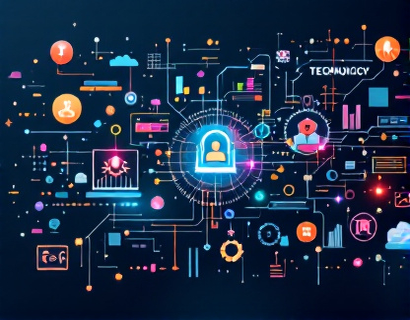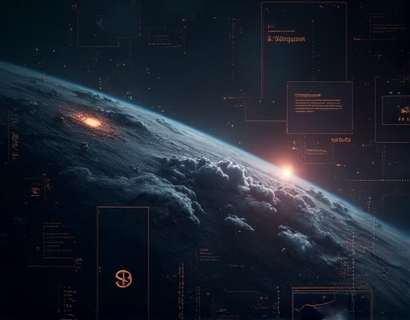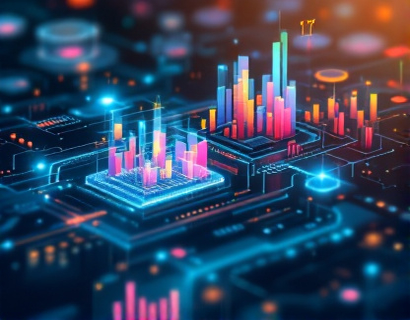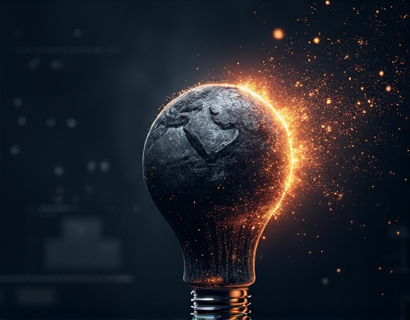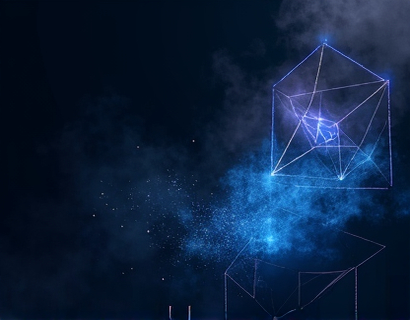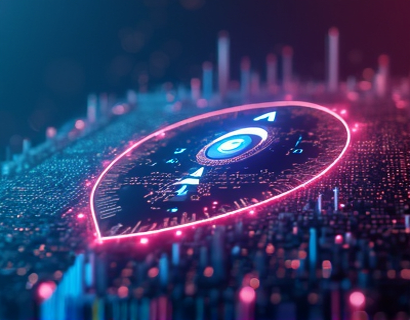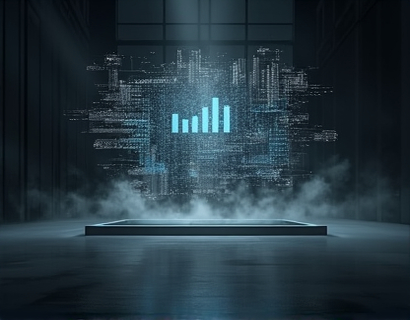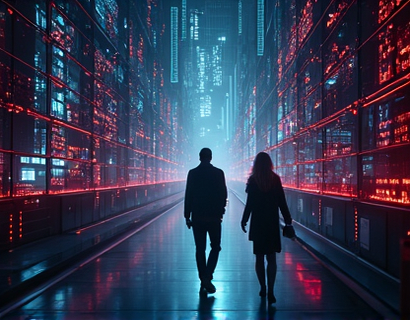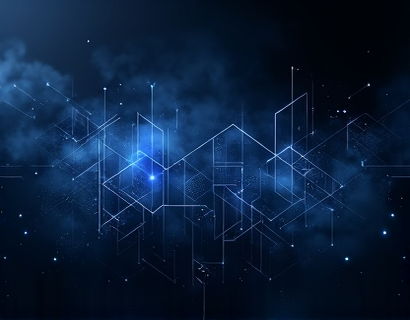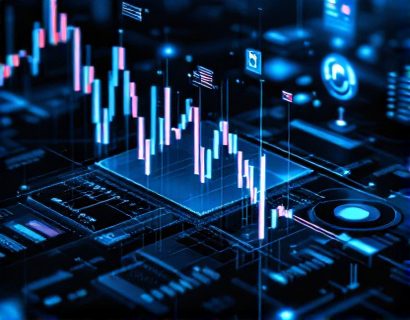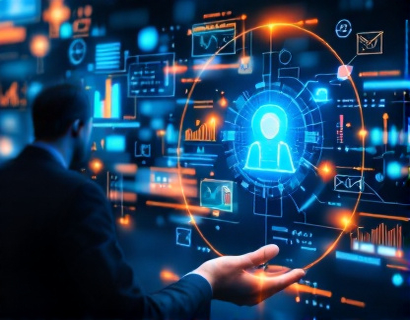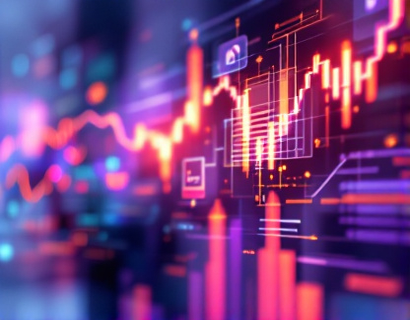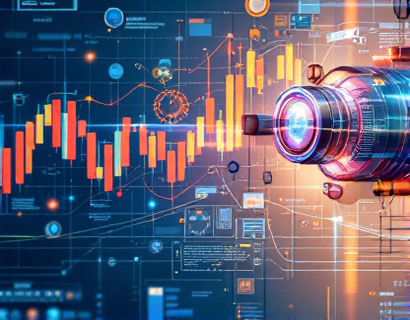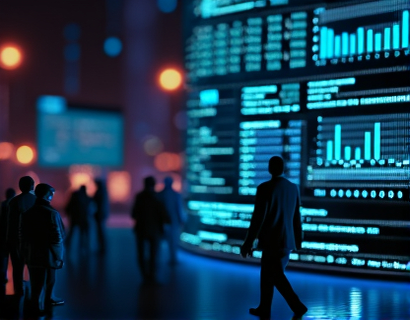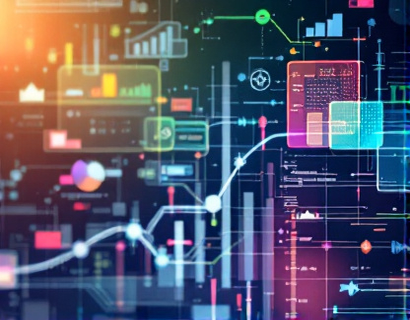Pioneering Digital Transformation with Blockchain and Machine Learning
The intersection of cryptocurrency and artificial intelligence (AI) is revolutionizing the digital landscape, creating a new paradigm where blockchain technology and machine learning converge to enhance online experiences. This article delves into the synergy between these two cutting-edge fields, exploring how they are reshaping industries and redefining connectivity and intelligence in the digital realm.
Understanding Blockchain and AI
Before diving into the fusion of blockchain and AI, it's essential to understand each technology individually. Blockchain, at its core, is a decentralized ledger technology that ensures transparency, security, and immutability in transactions. It operates on a peer-to-peer network, eliminating the need for intermediaries and reducing the risk of fraud.
Artificial intelligence, on the other hand, encompasses a range of technologies designed to simulate human intelligence in machines. These include machine learning, natural language processing, and computer vision. AI's primary goal is to enable machines to learn from data, adapt to new inputs, and perform tasks that traditionally required human intervention.
Synergy Between Blockchain and AI
The combination of blockchain and AI creates a powerful synergy that addresses some of the most pressing challenges in the digital world. Blockchain's transparency and security complement AI's ability to process and analyze vast amounts of data. This union paves the way for more secure, efficient, and intelligent digital solutions.
One of the key areas where blockchain and AI intersect is in data management. Blockchain provides a secure and transparent way to store and share data, while AI algorithms can process and derive insights from this data without compromising privacy. This synergy is particularly valuable in industries such as finance, healthcare, and supply chain management, where data integrity and security are paramount.
Enhancing Security with Blockchain and AI
Security is a critical concern in the digital age, and the combination of blockchain and AI offers robust solutions. Blockchain's decentralized nature makes it inherently resistant to single points of failure and cyber attacks. AI, with its advanced anomaly detection capabilities, can further enhance security by identifying and mitigating threats in real-time.
For instance, AI-powered systems can monitor blockchain networks for unusual patterns or behaviors that may indicate a security breach. These systems can automatically trigger alerts and implement countermeasures, ensuring the network remains secure and reliable. This proactive approach to security is a significant step forward in protecting sensitive information and maintaining trust in digital transactions.
Optimizing Efficiency with AI-Driven Blockchain Solutions
Efficiency is another area where blockchain and AI can work together to create significant improvements. Traditional blockchain networks often face scalability issues, with transaction processing times and costs being major bottlenecks. AI can optimize these processes by predicting network behavior, optimizing resource allocation, and automating routine tasks.
Smart contracts, a key feature of blockchain technology, can be enhanced with AI to become more adaptive and efficient. AI algorithms can analyze contract conditions and automatically execute actions based on predefined criteria, reducing the need for manual intervention. This not only speeds up processes but also minimizes the risk of human error.
Personalization and User Experience
The integration of AI with blockchain technology also revolutionizes user experience by enabling highly personalized services. Blockchain ensures that user data is securely stored and managed, while AI can analyze this data to provide tailored recommendations and services.
In the context of digital platforms and applications, AI-driven personalization can enhance user engagement and satisfaction. For example, a blockchain-based social media platform can use AI to curate content based on user preferences, ensuring a more relevant and engaging experience. At the same time, the blockchain ensures that user data is protected and that users have control over their information.
Supply Chain Transparency and Traceability
Supply chain management is another sector that benefits greatly from the combination of blockchain and AI. Blockchain provides a transparent and immutable record of transactions, while AI can analyze this data to optimize logistics, predict demand, and ensure compliance with regulations.
AI algorithms can track products from origin to destination, providing real-time insights into the supply chain. This transparency helps identify bottlenecks, reduce costs, and improve overall efficiency. Additionally, AI can predict potential disruptions and suggest alternative routes or strategies, ensuring a smoother and more reliable supply chain.
Financial Services and Cryptocurrency
In the financial sector, the fusion of blockchain and AI is transforming traditional banking and finance. Blockchain enables fast, secure, and cost-effective transactions, while AI can analyze market data, detect fraud, and provide personalized financial services.
Cryptocurrencies, built on blockchain technology, offer a decentralized alternative to traditional currencies. AI can enhance the functionality of cryptocurrencies by improving transaction processing, enhancing security, and providing better user experiences. For example, AI-driven wallets can offer predictive insights into transaction patterns, helping users manage their finances more effectively.
Challenges and Considerations
While the potential of blockchain and AI is vast, there are several challenges and considerations to keep in mind. One of the primary concerns is the regulatory landscape. As these technologies evolve, governments and regulatory bodies are working to establish frameworks that balance innovation with consumer protection and security.
Another challenge is the technical complexity involved in integrating blockchain and AI. Developers need to possess a deep understanding of both technologies to create seamless and effective solutions. Additionally, there is a need for standardization to ensure interoperability between different blockchain platforms and AI systems.
Future Prospects
The future of blockchain and AI is promising, with ongoing research and development pushing the boundaries of what is possible. As these technologies continue to mature, we can expect to see even more innovative applications across various industries.
One exciting area is the development of decentralized artificial intelligence (DAI), where AI models are trained and run on a blockchain network. This approach ensures that AI algorithms are transparent, secure, and resistant to manipulation. DAI has the potential to democratize access to AI, making it more accessible to a broader range of users and organizations.
Another frontier is the integration of blockchain with the Internet of Things (IoT). Blockchain can provide a secure and decentralized platform for IoT devices to communicate and share data, while AI can analyze this data to optimize device performance and predict maintenance needs.
Conclusion
The convergence of blockchain and AI is a transformative force in the digital world, offering unprecedented opportunities for innovation and growth. By combining the security and transparency of blockchain with the intelligence and adaptability of AI, we can create a more connected, efficient, and secure digital ecosystem. As these technologies continue to evolve, they will play a crucial role in shaping the future of technology and industry.




